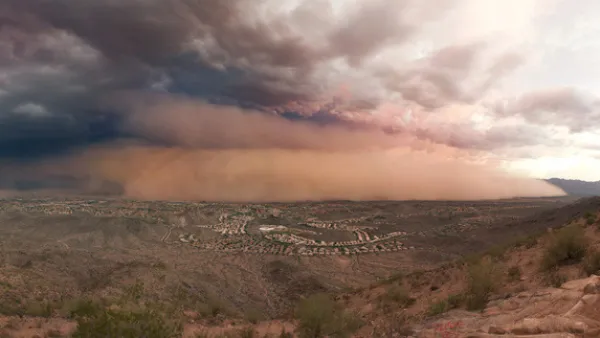Meghan Stromberg reports on the opening keynote from this year's annual APA national conference, taking place in Los Angeles through April 17th. Dr. Andrew Weaver spoke about the disconnect between climate change science and public perception.
One of the lead authors of the UN Intergovernmental Panel on Climate Change's landmark report Climate Change 2007: The Physical Science Basis, Dr. Weaver spoke about the overwhelming scientific consensus behind the human impacts on climate change and divergent public perception of the problem and its causes.
He attributes this disconnect to both "how scientists communicate - including using jargon and failing to present complex issues in a way that nonscientists can understand - and how the media present these issues," writes Stromberg.
"The media, he said, employ sensationalist headlines and cite experts who lack true scientific credentials. Most egregiously, the media distort the facts in the name of providing the appearance of balanced reporting. In doing so, they give disproportionate time and voice to the small group of people who doubt the existence of climate change or the evidence that increased greenhouse gas emissions are the cause."
While the current commitments of the world's nations for reducing emissions by 2050 appear inadequate to head off the 2 degree Celsius threshold for significant impacts, Dr. Weaver was optimistic about the longer-range opportunity to create entirely de-carbonized societies through technological innovation, and implored planners to build the infrastructure to facilitate such a transformation.
FULL STORY: Opening Keynote: Communicating Climate Change

National Parks Layoffs Will Cause Communities to Lose Billions
Thousands of essential park workers were laid off this week, just before the busy spring break season.

Retro-silient?: America’s First “Eco-burb,” The Woodlands Turns 50
A master-planned community north of Houston offers lessons on green infrastructure and resilient design, but falls short of its founder’s lofty affordability and walkability goals.

Delivering for America Plan Will Downgrade Mail Service in at Least 49.5 Percent of Zip Codes
Republican and Democrat lawmakers criticize the plan for its disproportionate negative impact on rural communities.

Test News Post 1
This is a summary

Test News Headline 46
Test for the image on the front page.

Balancing Bombs and Butterflies: How the National Guard Protects a Rare Species
The National Guard at Fort Indiantown Gap uses GIS technology and land management strategies to balance military training with conservation efforts, ensuring the survival of the rare eastern regal fritillary butterfly.
Urban Design for Planners 1: Software Tools
This six-course series explores essential urban design concepts using open source software and equips planners with the tools they need to participate fully in the urban design process.
Planning for Universal Design
Learn the tools for implementing Universal Design in planning regulations.
EMC Planning Group, Inc.
Planetizen
Planetizen
Mpact (formerly Rail~Volution)
Great Falls Development Authority, Inc.
HUDs Office of Policy Development and Research
NYU Wagner Graduate School of Public Service





























